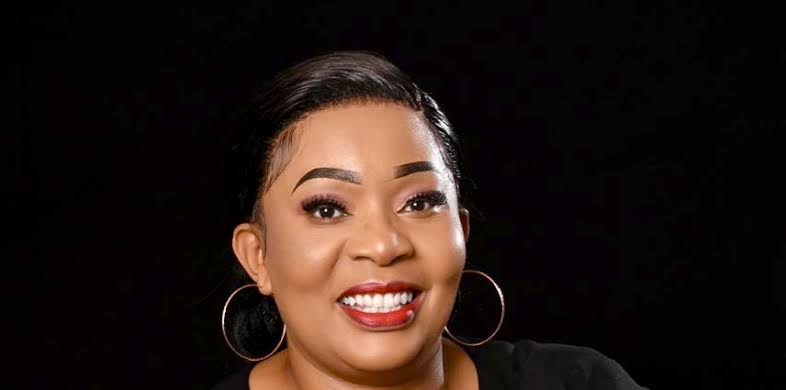By Jackie Adhyambo
In an era where corporate social responsibility (CSR) initiatives often serve as glossy veneers for industries grappling with ethical scrutiny, Dr Jane Mwikali, the Chairperson of the Betting Licensing and Betting Control Board (BCLB), has emerged as a pioneering force redefining the nexus between profit and public good.
With wise leadership and an unflinching commitment to societal welfare, Dr Mwikali has steered Kenya’s betting sector toward a paradigm shift, one that prioritises structural social safeguards over ad hoc CSR gestures. Her approach, both innovative and morally anchored, underscores a profound understanding of the fundamentals of sustainable development. This model is powered by the quest of achieving true progress that lies in systemic protections for the vulnerable and not transient philanthropy stunts.
The distinction between social safeguards and CSR, though subtle, is profound. Corporate social responsibility often operates as a discretionary act and a voluntary allocation of resources to community projects, environmental efforts or cultural initiatives. Yet, as Dr Mwikali astutely observes, such measures risk becoming performative if untethered from enforceable frameworks. “CSR, when divorced from accountability, is little more than a public relations exercise,” she remarked during a recent symposium on ethical governance. “Social safeguards, conversely, are non-negotiable. They are the bedrock upon which industries must build their operations to prevent harm and foster equity.”
Under her stewardship, the BCLB has introduced stringent regulations mandating that a fixed percentage of betting revenues be channelled directly into programmes addressing gambling addiction, youth education and community infrastructure. These are not discretionary acts of charity but legally binding obligations, woven into the licensing agreements of betting firms.
The BCLB board chaired by Dr Mwikali has set out policies that reflect a nuanced grasp of Kenya’s socio-economic landscape. Recognising that the ubiquity of betting platforms that comes in marketing tactics that focus on low-income populations carries inherent risks, the board has championed safeguards that mitigate exploitation of the hapless. Among Mwikali-led board’s landmark initiatives is the National Gambling Harm Reduction Fund, which allocates 15% of annual betting revenues to addiction treatment centres, public awareness campaigns and vocational training for recovering gambling addicts. This fund was operationalised in 2023 and has already supported over 5,000 individuals through counselling and imparting of life skills.
Equally transformative is her focus on intergenerational equity. By directing a portion of proceeds to educational grants for children in economically marginalised communities, Dr Mwikali addresses the root causes of vulnerability. “Poverty should not be a life sentence,” she declared at a fundraiser in Mombasa last year. “Education is the ladder through which we empower future generations to transcend cycles of deprivation.” To date, the Futures Assurance Programme has awarded scholarships to 2,300 students, enabling access to secondary and tertiary education in regions where betting advertisements once overshadowed school signboards.
Not surprising at all, Dr Mwikali’s reforms have faced pushback from segments of the betting industry that argue that heightened fiscal obligations stifle growth. Yet, her resolve remains unshaken. “Profitability cannot come at the expense of societal well-being,” she countered during a parliamentary hearing. “If an enterprise cannot operate without harming its community, it has no business operating at all.”
Her stance has garnered resounding support from civil society groups, healthcare professionals, and grassroots organizations. “Dr Mwikali’s policies are a lifeline,” testified Grace Wanjiru, a counsellor at Nairobi’s Gambling Recovery Centre. “Before the Harm Reduction Fund, we struggled to meet demand. Now, we have the resources to expand our outreach and save lives.” Similarly, community leaders in informal settlements praise infrastructural projects funded by betting revenues, including water sanitation systems and maternal health clinics, as tangible markers of progress.
What distinguishes Dr Mwikali’s approach is her fusion of pragmatism and compassion. While CSR initiatives often prioritise high-visibility projects such as sports sponsorships and gala dinners, her framework targets systemic inequities with surgical precision. By embedding social safeguards into regulatory DNA, she ensures that the betting industry’s contributions are not ephemeral gestures but enduring investments in national resilience.
Through collaborations with academia, the BCLB is pioneering research into gambling’s socio-psychological impacts; ensuring policies remain data-driven and adaptive. “We cannot legislate in a vacuum,” Dr Mwikali notes. “Understanding the evolving dynamics of gambling allows us to pre-empt harm, not merely respond to it.”
By elevating social safeguards from afterthoughts to imperatives, Dr Mwikali has redefined the role of regulatory bodies from passive arbiters to proactive custodians of public trust. Her work affirms that the measure of progress is not in the wealth amassed by corporations but in the dignity preserved for society’s most vulnerable.
Adhyambo is a Nakuru-based knowledge management consultant.



